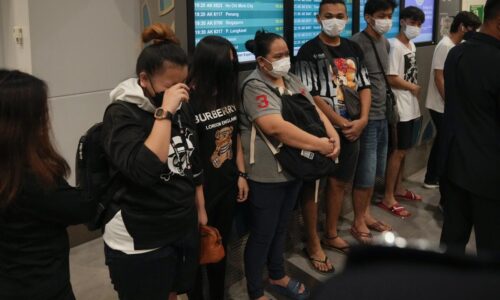By Samady Ou, KMD youth ambassador on NEW STRAITS TIMES
May 27, 2025
A TROUBLING issue continues to fester in many countries: the growing proliferation of cybercrime and multibillion-dollar cyberscam networks.
Many of these scam centres have taken root within Asean countries in recent years, thriving on corruption and a lack of transparency.
Now at what the United Nations Office on Drug and Crime (UNODC) calls an “inflection point” for cybercrime regionally, nations around the world are stepping up their responses to the risk of online fraud by scam centres in Southeast Asia.
These centres, which were once directed at domestic victims, have since gone global with the adoption of artificial intelligence (AI). This has allowed for the development of alternative online worlds, into which victims are pulled and subsequently defrauded.
Scam operators also, now, have years of accumulated knowledge at their disposal, and can use this database of information to identify their potential victims.
Disarming and increasingly sophisticated tactics have crippling impacts on citizens, not just in Asia but across the globe.
For example, people who are worried about online banking are being targeted by callers purporting to represent law enforcement agencies, requesting they share their card details for investigation.
Similarly, people who want to start a relationship online find themselves talking to people who seem to match their criteria perfectly.
United States-based Heartland Tri State Bank is a case in point.
It collapsed in 2024 after its chief executive officer, Shan Hanes, was found guilty of embezzlement and imprisoned for making US$47 million in wire transfers to cyberscammers.
The scammers had convinced him to invest in a bogus cryptocurrency scheme, and Hanes would watch his “investment” increase in value on a fake website.
The bank’s failure cost the Federal Deposit Insurance Corporation US$54.2 million to reimburse savers. Local Kansas shareholders in the bank, including farmers and teachers, saw their investment wiped out.
The Philippines, Laos and Myanmar have taken steps, in response to international pressure, to crack down on cybercrime operations within their environs.
However, in the case of Cambodia, the UNODC points out that there has been no sustained law enforcement drive since a series of raids focused on Sihanoukville in 2022.
And in February this year, shortly before Filipino police rescued over 30 Indonesian nationals from an online operation in Pasay, its operators were exploring a move to Cambodia.
The role of certain Asean members in propagating cybercrime runs deep in some cases.
The O-Smach Resort near the Thai border in Cambodia has been repeatedly identified as a major hub for cyberscam operations and human trafficking.
Victims at this centre have described horrific working and living conditions, including long hours, physical abuse and threats of violence.
In September last year, the United States Treasury Department sanctioned Cambodian tycoon, Ly Yong Phat, and his L.Y.P. Group Co, which owns O-Smach Resort, specifically citing “serious human rights abuse related to the treatment of trafficked workers subjected to forced labour”.
This is a problem that is not exclusive to Cambodia, but also to other Asean members, including Myanmar.
This shows that there is still more to do — particularly among Asean members — to clamp down on these undoubtedly complex, and increasingly cross-bordered, operations.
Asean members should push for an independent investigation into certain places like the casinos used for cybercrime operations.
The findings of such an investigation must lead to sanctioning of those involved. Without this, the security — and economy — of the region will continue to be threatened.
The UNODC has been clear that corruption and lack of effective governance is a driving factor in the growth of cybercrime.
Thus, if governments especially in Southeast Asia are serious about protecting their citizens, they must act.
__________________________
The writer is Human Rights Foundation Freedom Fellow, Cambodian youth activist and KMD youth ambassador
Related Posts

Southeast Asia’s online scam industry is a global menace
- admin
- May 28, 2025
By Samady Ou, KMD youth ambassador on The Jakarta Post May 27, 2025 Operators now have years of ..

KMD welcomes report lifting lid on Cambodian government complicity in cyber-crime
- admin
- May 23, 2025
May 24, 2025 The Khmer Movement for Democracy (KMD) welcomes a report authored by Jacob Sims an ..

